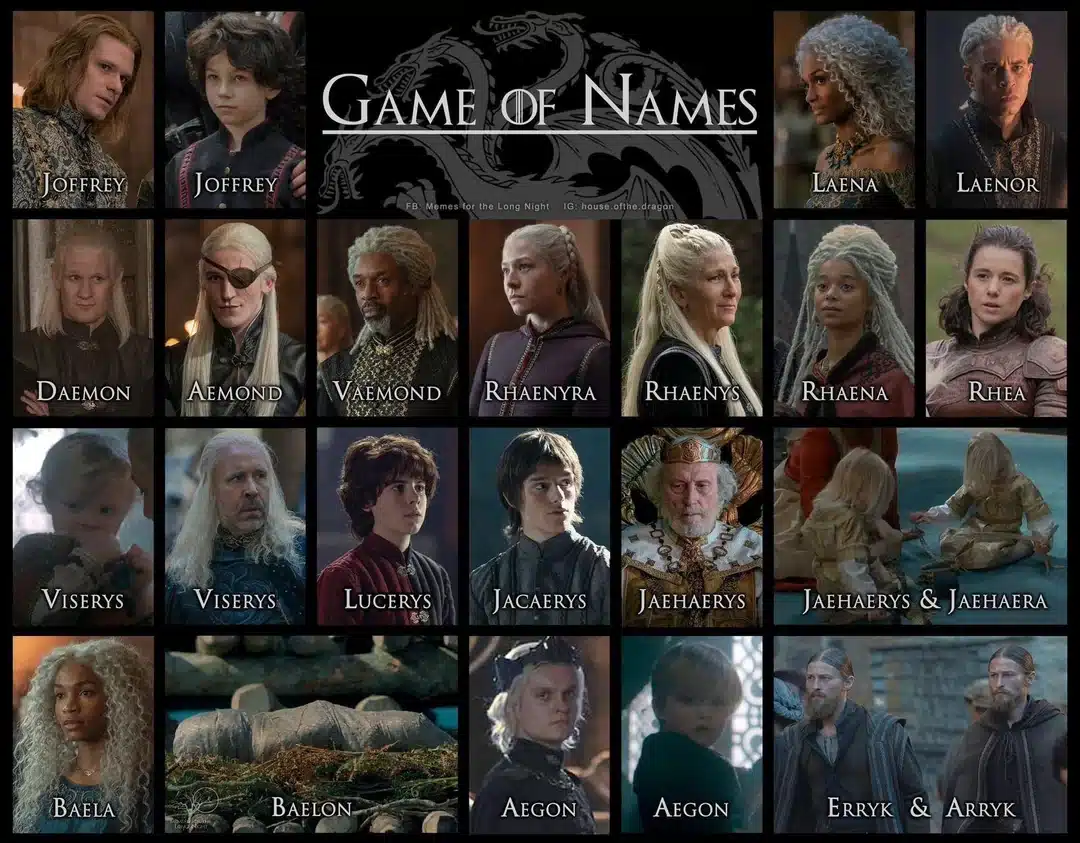If you’re a writer, one of the first and most exciting things you’ll do is name your cast of characters. You’d think it would be as easy as naming your imaginary friends, your dolls, pets, or even your children. But it’s not the same at all! One major mistake writers make is thinking that they, the author, name their characters. They do not. So, if you don’t choose the character’s name, then who does? Well, go inside your fictional world and ask the question again. The answer: your character’s parents choose the character name. So you must give some thought into the character’s backstory (and their parents’ backstory) before choosing a character name. Now that you’re in the right mindframe, here are some other tips to consider before naming your fictional characters:
One major mistake writers make is thinking that they, the author, name their characters. They do not. So, if you don’t choose the character’s name, then who does? Well, go inside your fictional world and ask the question again. The answer: your character’s parents choose the character name. So you must give some thought into the character’s backstory (and their parents’ backstory) before choosing a character name. Now that you’re in the right mindframe, here are some other tips to consider before naming your fictional characters:
1. Make the name age-appropriate
Decide the age of your character. Deduct that age from the year your story takes place. For example, if your story takes place in 1960 and your character is 25, she was then born in 1935. If your character lives in the United States, use the U.S. Social Security site to see the most popular names for that year. We’re not suggesting that you have to use a popular name for that time period, but definitely don’t use a contemporary name that would not have been given to children at that time. This is probably the biggest mistake television writers make. They’ll give adult characters names that are currently popular for babies.
2. Make the name easy to pronounce
Readers pronounce names in their head as they are reading. If they stumble on a word or name, it will take them out of your story. If you are writing a screenplay, you don’t want a name that is difficult to pronounce. Also, if you’re writing a screenplay or teleplay (tv), think about the actors and if it will be difficult to say the name aloud.
3. Consider your character’s background
A family’s ethnicity, history, and geographic location are tantamount in baby naming. Even if it’s a minor character in your story, take the time to figure out his backstory, his ethnicity, his parents’ backgrounds, the parents’ personalities, and a name that fits. Also consider location of birth and generation. A fifth-generation Italian child may not be named Lorenzo if he’s born in Ohio in 1990. He might just be named Jason. If he is named Lorenzo, include the backstory of the name as character development.
4. Don’t use similar names for two characters
Using two similar names will be confusing to the reader/consumer of your story. Kirk and Kent, for example, might trip people up. Even when naming twins, be careful that they are unique enough to differentiate to the viewer/reader. Just watch House of the Dragon and you’ll understand how confusing it can be!

5. But give your siblings the same style of names
Very rarely will parents change their naming styles when naming children. If one child has a traditional name, it would be rare that another would have a created or wild name. If you want a sibling to have a different type of name, make it a nickname (with a secret traditional name). For example, a woman named Skyler probably wouldn’t have a sister named Marie (Breaking Bad). If I had to correct that, I’d name them Skyler and Reese.
Extra tip: Visit CharacterNames.com for more inspo!
6. Consider your genre
Romance novel characters have historically been given more flowery, romantic names. Sci-fi characters most often have created names (see tip #8). Consider your genre before naming your characters. Hopefully you have read many works within your genre (all good writers do). Follow suit. As is the case in the Hunger Games series, the author Suzanne Collins chose nature names (Katniss & Primrose) for her protagonist and her sister, but created names for other characters like Pollux and Haymitch. And some characters like Gale, Octavia, and Caesar – received names that we recognize as names. This juxtaposition of created names and recognizable names helped further the concept that their world was historically our world.
7. Avoid famous name association
There are certain names in our culture that are easily identified with famous or infamous personalities. Adolf, Roseanne, Beyoncé, Madonna, to name a few. Unless it is part of your character’s story or background, avoid using easily-associative names. This also applies to fictional names, as well, like Atticus, Scarlett, or Katniss.
8. Sci-Fi names don’t have to sound alien
It’s difficult to predict what names will be popular in the year 3000, however you don’t have to make your science fiction characters sound like they are from Mars (unless they are). As stated in Tip #2, the name should still be easy to pronounce in the reader’s head. The name Zyxnrid, for example, would be difficult to read or listen to every time the character is referenced—and may detract from your overall story. If you do choose to create your sci-fi name, you may want to:
- Combine two common names to make a less common, but pronounceable name. Example: Donica (Donna and Veronica).
- Use ancient mythological names, or combine two of them. Example: Ceres or Evadne.
- Make it easy to pronounce and spell. Example: Bilbo Baggins from Lord of the Rings or Yoda from the Star Wars franchise.

9. Avoid overusing character names in dialogue
It’s a soap opera thing that has spilled over into serial television. If you have characters that have an especially close relationship, they would not keep saying each other’s name. This is often a trick of screenwriters to identify their characters, especially for new viewers who are just tuning in. However good writers can establish the relationship in less obvious ways.
In real life, couples will use nicknames and terms of endearment (honey, dear, boo). What nicknames have your characters created for each other? Parents rarely call their children by their full names–unless the kid is in trouble. If you have loving parent characters that are addressing their kids, use a nick name or term of endearment (sweetie, baby, D.J.). An exception to this would be if you want to show the parent character being cold and distant to their child.
That being said, outdated terms like “Sis” and “Cuz” rarely crop up in natural, normal conversation. But they are all over television, especially pilots. Instead of having your character constantly calling her “Sis,” have him ask if she’s “Heard from Mom today?” or ask another character, “Don’t I have the best sister ever?”
10. Have fun choosing character names
Take time to see what “fits.” What was your character’s childhood nickname? Is that an embarrassment when his parents address him in front of his friends? Did your character change his name at any point in his/her life? If so, why? Does your female character want to change her surname when she gets married? Why or why not? Names are such an important part of one’s identity, don’t take it lightly. A name can provide great insight and backstory to a character if you do it right.
Extra tip: Use our Advanced Search tool to search by meaning, which is a fun easter egg to infuse into your story.
There’s Always an Exception!
There’s always an exception to the rules above: if the character’s name is part of the plot or their backstory. In that case, it’s really fun to use names in this way, as long as you explain it in exposition. Back to House of the Dragon, it’s a shared character name that drives the entire plot. A great exposition in Better Call Saul is how Jimmy McGill becomes Saul Goodman. Names are such an inherent part of everyone’s lives that your readers/audience can always relate to a good name story.
Jennifer Moss is an author of a series of mystery novels and the founder of BabyNames.com, PetNames.com, and CharacterNames.com. She has over 25 years’ experience naming babies and fictional characters.
Jennifer Moss (she/her) is the founder of BabyNames.com, author of The Baby Names Workbook, and Producer of The Baby Names Podcast. Jennifer is widely regarded as the leading expert on popular baby name trends and the naming process, serving as the authoritative source on the subject for national and international media.
Jennifer entered the tech arena in the 80s as a software developer and database architect, and became a pioneer in the Internet industry. In addition to operating BabyNames.com, Jennifer owns a web development agency in central California.






